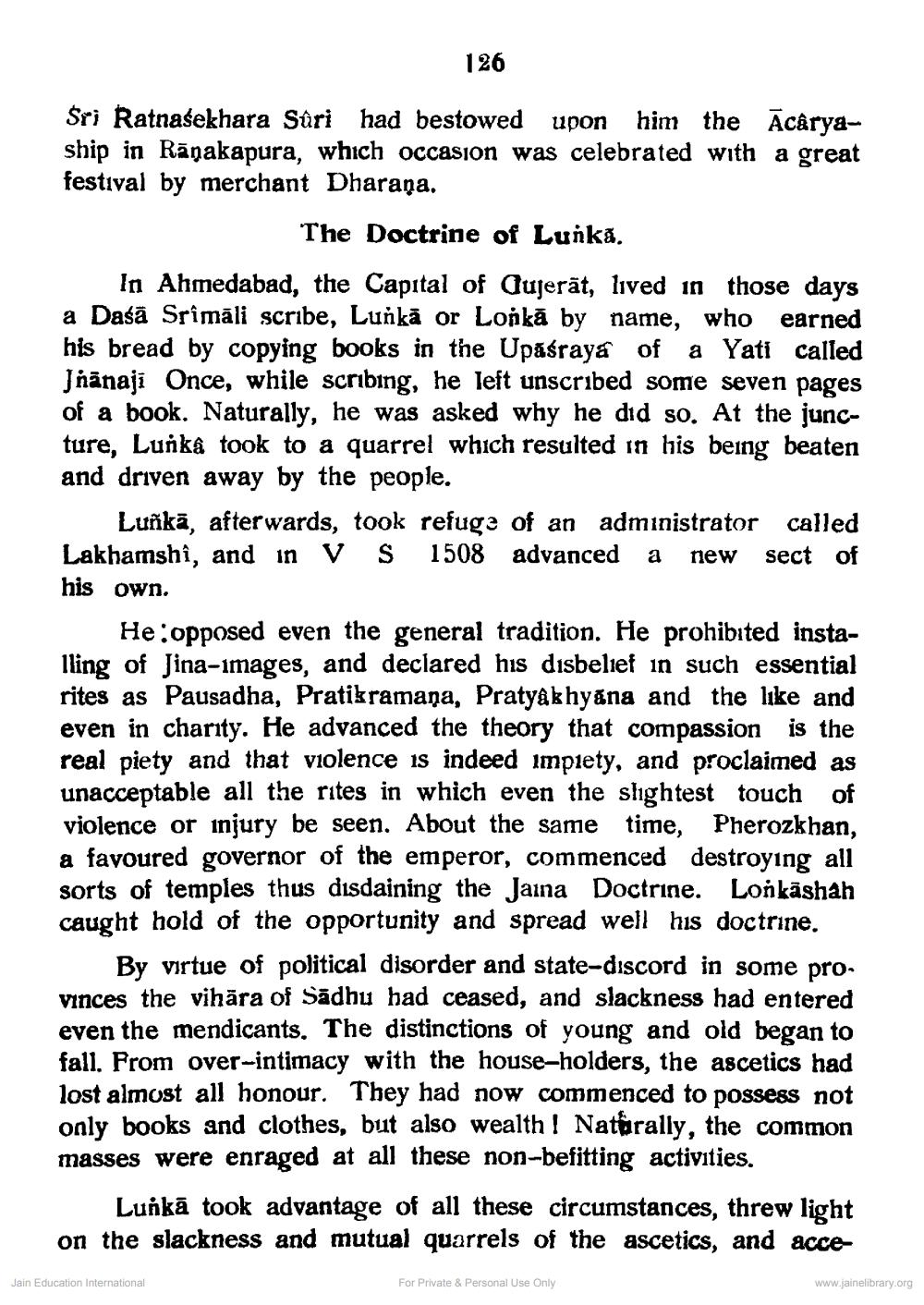________________
126
Sri Ratnasekhara Sûri had bestowed upon him the Acâryaship in Rāņakapura, which occasion was celebrated with a great festival by merchant Dharana.
The Doctrine of Lunka.
In Ahmedabad, the Capital of (ujerāt, lived in those days a Daśā Srimāli scribe, Luňkā or Lořkā by name, who earned his bread by copying books in the Upasraya ofa Yati called Jnānaji Once, while scribing, he left unscribed some seven pages of a book. Naturally, he was asked why he did so. At the juncture, Lunka took to a quarrel which resulted in his being beaten and driven away by the people.
Luñkā, afterwards, took refuge of an administrator called Lakhamshi, and in V S 1508 advanced a new sect of his own.
He: opposed even the general tradition. He prohibited installing of Jina-images, and declared his disbelief in such essential rites as Pausadha, Pratikramaņa, Pratyakhyana and the like and even in charity. He advanced the theory that compassion is the real piety and that violence is indeed impiety, and proclaimed as unacceptable all the rites in which even the slightest touch of violence or injury be seen. About the same time, Pherozkhan, a favoured governor of the emperor, commenced destroying all sorts of temples thus disdaining the Jaina Doctrine. Loňkāshah caught hold of the opportunity and spread well his doctrine.
By virtue of political disorder and state-discord in some provinces the vihāra of Sadhu had ceased, and slackness had entered even the mendicants. The distinctions of young and old began to fall. From over-intimacy with the house-holders, the ascetics had lost almost all honour. They had now commenced to possess not only books and clothes, but also wealth ! Naturally, the common masses were enraged at all these non-befitting activities.
Luňkā took advantage of all these circumstances, threw light on the slackness and mutual quarrels of the ascetics, and acce
Jain Education International
For Private & Personal Use Only
www.jainelibrary.org




